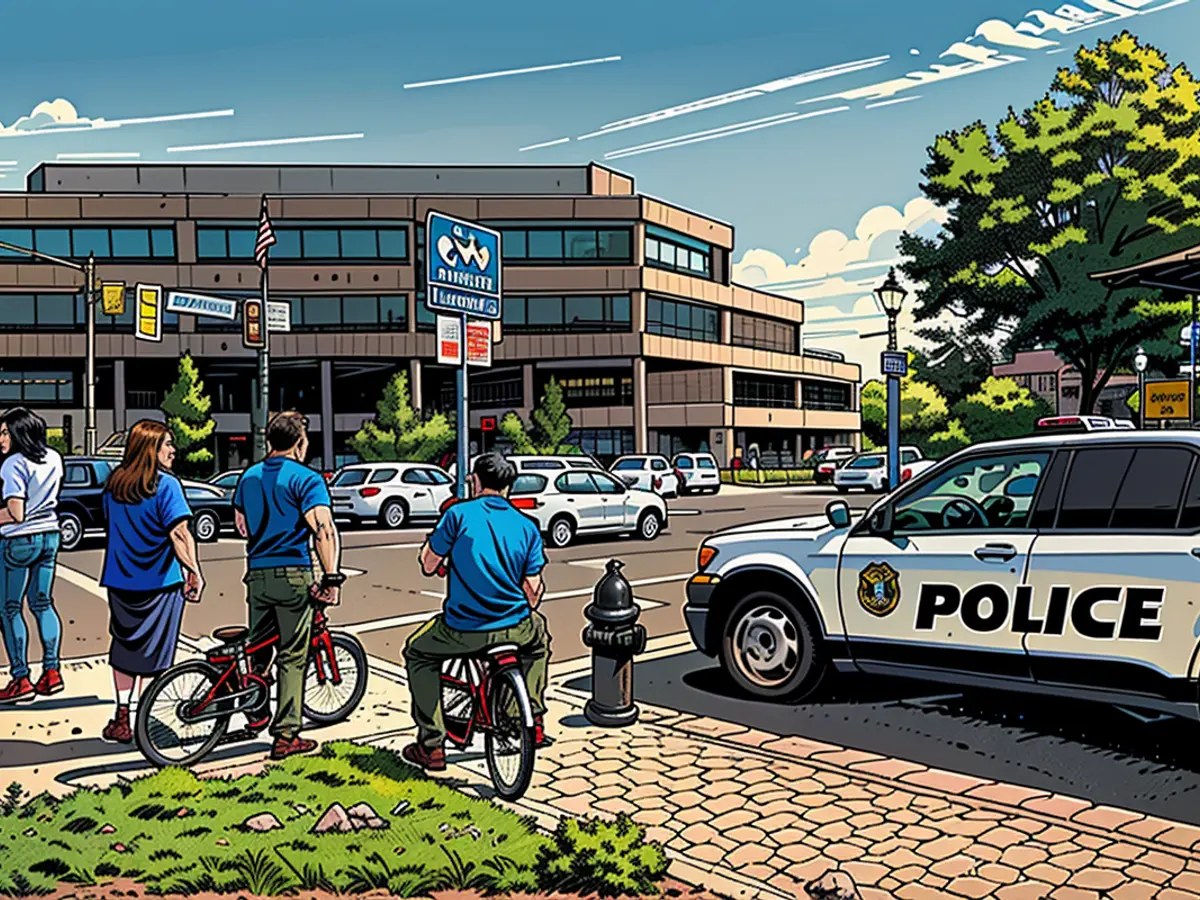Intimidation of physical harm in Springfield is negatively impacting the city's financial resources.
This is placing a significant financial burden on the city. We're looking at expenses in the hundreds of thousands of dollars, and we haven't even factored in overtime or contracts required for security and communication. Rue stated this to CNN's Boris Sanchez recently.
The city found itself in the national spotlight due to debunked conspiracy theories amplified by Donald Trump and running mate JD Vance. These theories claimed that Haitian immigrants in Springfield were engaging in cannibalism, specifically consuming pets like cats and dogs.
As a result, the city has been dealing with a string of bomb threats for a week. These threats have forced the closure of schools, government offices, and grocery stores. The chaos has necessitated the deployment of more law enforcement officers, including tower cameras and state troopers stationed at public schools. This added security comes at a cost to a city that has been grappling with budget shortfalls for some time. In the past decade, the city has made significant cuts to its police and fire departments.
Dan Tierney, press secretary for Ohio Gov. Mike DeWine, told CNN that the additional patrol personnel might not incur extra costs, as these personnel would be working and getting paid regardless.
Springfield city officials did not respond to a request for comment on the additional security costs. However, Mayor Rue issued a proclamation granting the city temporary emergency powers to mitigate public safety concerns. This proclamation includes a streamlined process for securing additional security contracts to protect the community.
When asked about potential legal action or reimbursement for costs incurred during the response to the threats, Clark County Commissioner Flax Wilt stated that the full financial impact would be determined as things settle down, but pursuing litigation might not be beneficial.
Funding needed to manage migrant surge
Springfield was already struggling to handle its growing Haitian population before the focus shifted to public safety and keeping businesses operational.
The influx of people has placed strain on hospitals, schools, and law enforcement, particularly due to a language barrier. Rue told CNN that they had been requesting state and federal support for months to cover the high cost of translation services. A portion of the $2.5 million in state funds recently announced by Gov. DeWine to aid Springfield will be used for this purpose, according to DeWine's office. The funds were approved to expand primary care access for Springfield residents.
Another challenge has been managing inexperienced drivers and reducing reckless driving, which DeWine has linked to Haitian immigrants. Last year, the Ohio Traffic Safety Office hosted driver education courses in Haitian Creole. More seminars are planned for this year.
However, the city's focus was not solely on immigration issues.
The city commission discussed constructing a new fire station, renaming roads, and received an update on the cleanup of a former industrial waste landfill near Springfield in a recent meeting. The city manager mentioned the need for more housing, as the supply is currently low compared to demand for all types of housing.
Policing was a priority for Springfield officials, who aim to increase the 120-officer police force. The police department is actively recruiting officers but is struggling, like other US cities have in recent years.
Mayor Rue has expressed hope that people would pay more attention to what Springfield has to offer.
Springfield was a significant manufacturing hub in the 1980s and 1990s, but many jobs dwindled, leading to a serious economic decline. In an op-ed published in The New York Times, Gov. DeWine wrote about the "dramatic influx" of Haitian migrants, who have contributed to a resurgence in manufacturing and job creation in Springfield.
Potential Trump visit could strain city's finances, says mayor
Rue has advised presidential candidates against visiting the city, as he believes it would place an "extreme strain" on its financial resources.
Rue's comments came after Trump announced he would visit Springfield "in the next two weeks." The mayor added that if Trump decided to change his plans and avoid visiting Springfield, it would send a message of peace to the city.
In multiple interviews, Rue suggested that a visit from either Trump or Vice President Kamala Harris would be challenging for the city.
At a National Association of Black Journalists event, Harris expressed sympathy for Springfield, calling the situation a "crying shame." However, her campaign has not disclosed any plans for a visit to Springfield.
Campaign rallies can have a financial impact on local governments, as cities often dispatch police officers to ensure the events' security.
For instance, Green Bay Mayor Eric Genrich stated in July that presidential campaigns owed the city over $50,000 for police, fire, public works, and traffic services during events in 2022 and 2016.
"Frugal residents of Green Bay believe in taking care of their financial obligations and they expect the presidential candidates to do the same," Genrich expressed in a statement issued in July. "It's about justice and financial prudence – the residents of Green Bay shouldn't be left to cover these costs."
In light of the potential financial burden, Mayor Rue urged presidential candidates to reconsider visiting Springfield, as it could further strain the city's resources. Due to the increased security measures and law enforcement deployment, the city is facing additional expenses in managing the current situation.









